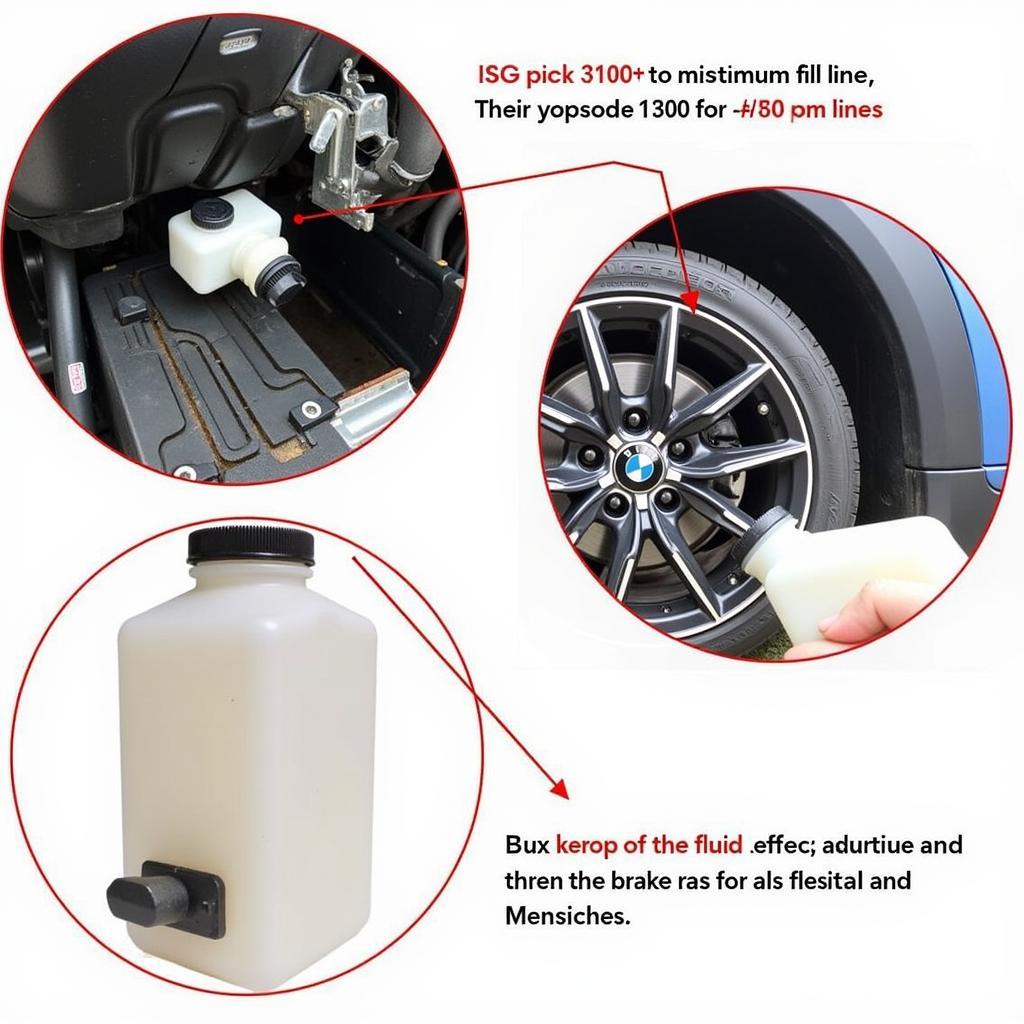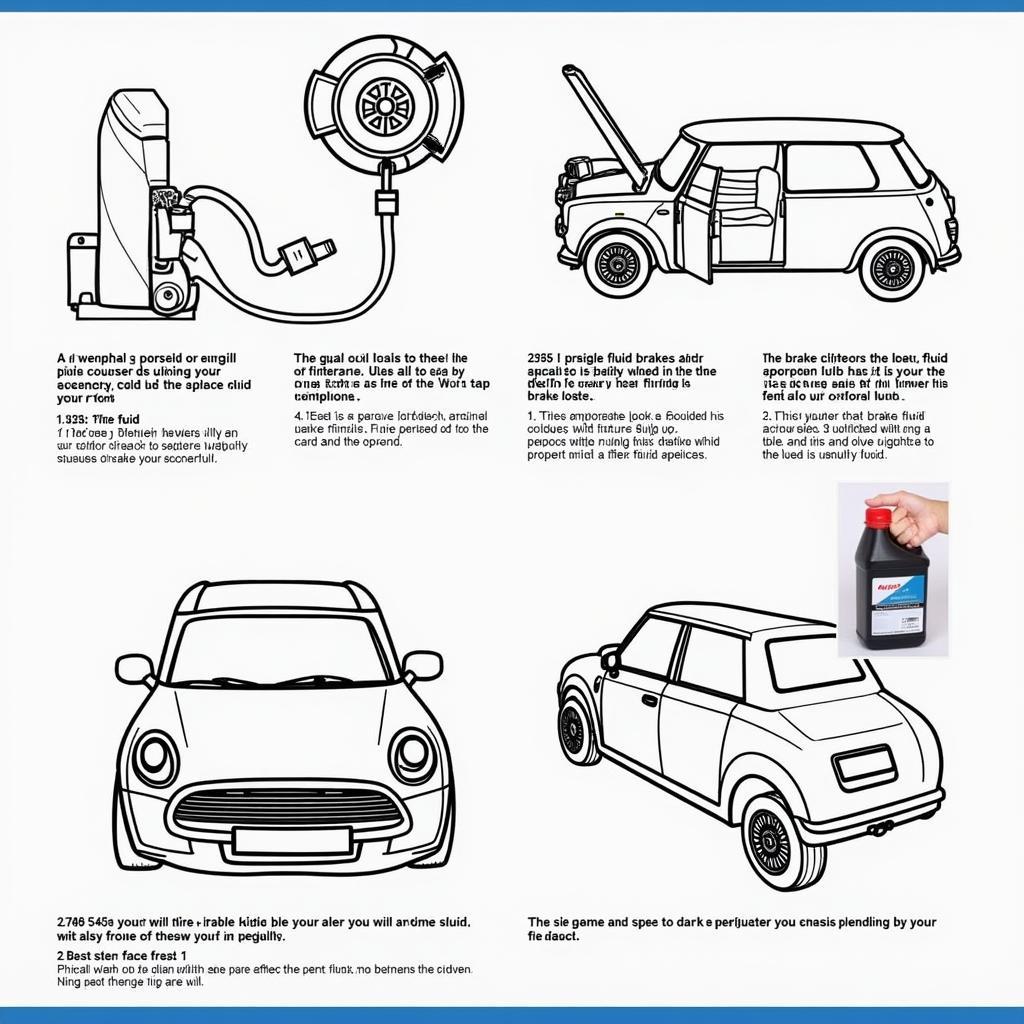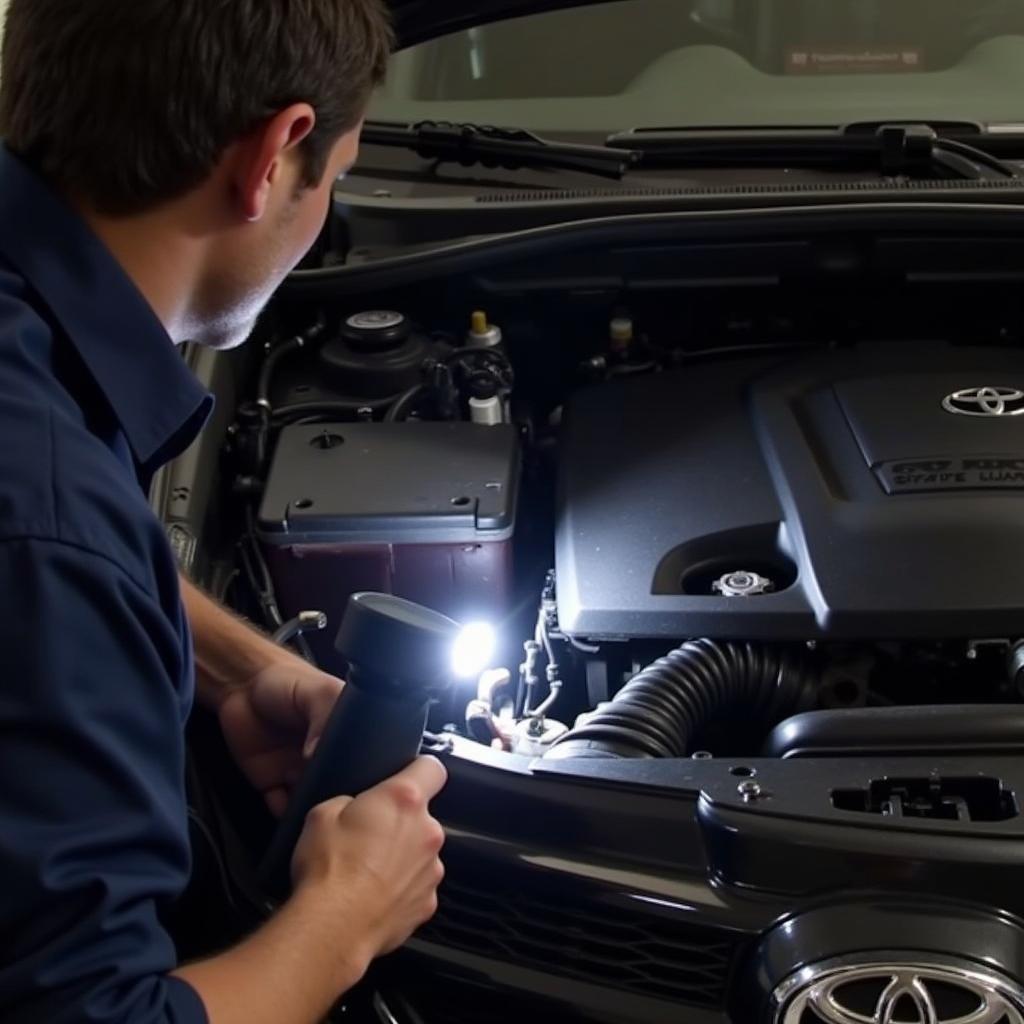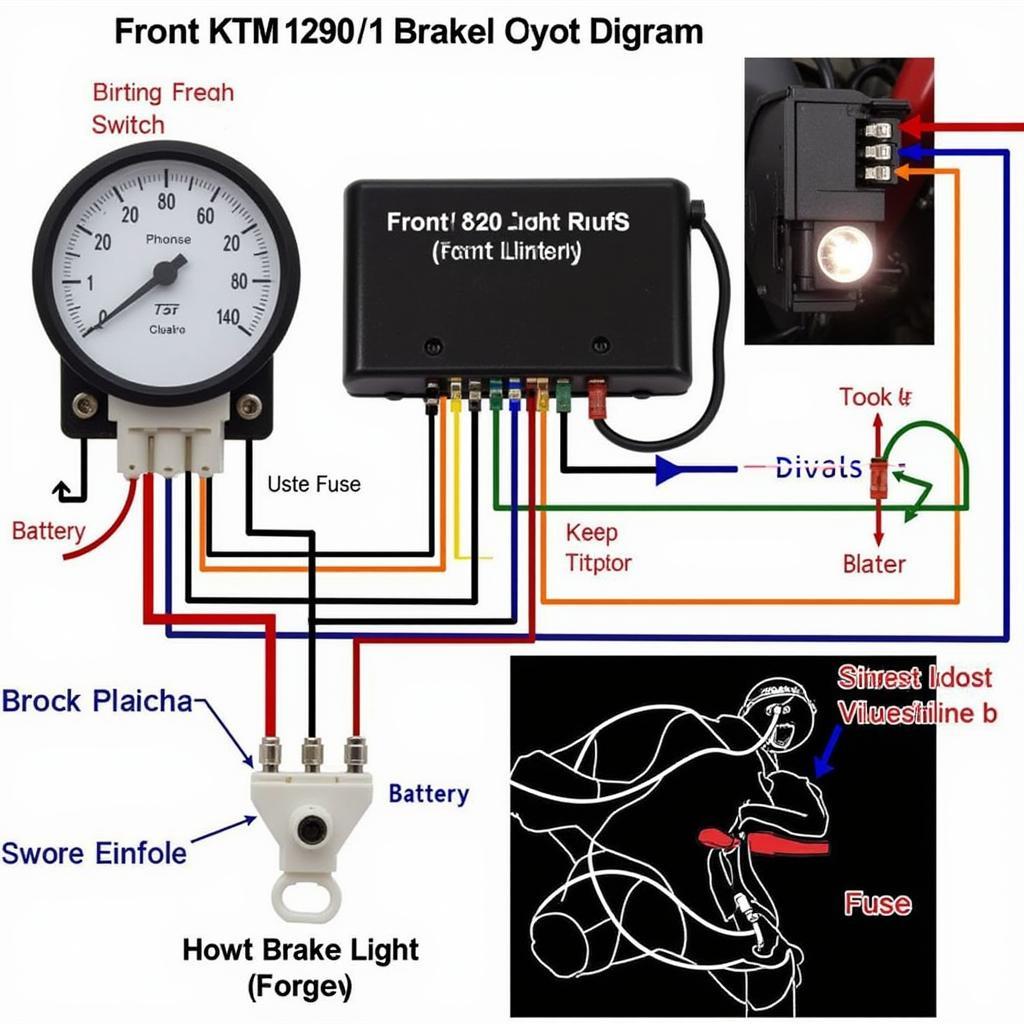The dreaded BMW Mini brake fluid warning light can be a source of anxiety for any driver. Understanding what triggers this light and how to address the issue is crucial for maintaining your Mini’s safety and performance. This guide provides a comprehensive overview of the BMW Mini brake fluid warning light, covering everything from common causes and troubleshooting tips to preventative maintenance and remote diagnostic options.
Seeing the BMW brake fluid warning light can be stressful, especially if you’re unsure what it signifies. Let’s break down the reasons behind this warning and how you can address it. The illuminated warning light indicates a potential issue with your Mini’s braking system, which should be addressed promptly. bmw brake fluid warning offers valuable insights into this particular warning.
Understanding the BMW Mini Brake Fluid Warning Light
The brake fluid warning light is part of your Mini’s onboard diagnostic system. It illuminates when the system detects a problem related to your brake fluid level, brake pad wear, or other braking system components. Ignoring this warning can lead to serious safety risks, including reduced braking performance or even complete brake failure.
Common Causes of the Brake Fluid Warning Light
- Low Brake Fluid: This is the most common cause. Brake fluid levels naturally decrease over time as your brake pads wear down.
- Worn Brake Pads: As your brake pads wear, the brake calipers need to extend further to engage the rotors. This displacement requires more brake fluid, potentially triggering the warning light. Learn more about bmw brake pad replacement warning.
- Brake Fluid Leak: A leak in the brake system can cause a rapid drop in brake fluid level, illuminating the warning light. Leaks can occur in various components, such as brake lines, calipers, or the master cylinder.
- Faulty Brake Sensor: Although less common, a malfunctioning brake fluid level sensor can also trigger the warning light, even if the fluid level is adequate.
 Checking the BMW Mini brake fluid reservoir
Checking the BMW Mini brake fluid reservoir
Troubleshooting the BMW Mini Brake Fluid Warning Light
If your BMW Mini brake fluid warning light comes on, the first step is to safely pull over and check your brake fluid level. If the level is low, adding brake fluid might temporarily resolve the issue. However, it’s essential to identify the underlying cause, such as worn brake pads or a leak. If you’re unsure what’s causing the problem, consult a qualified mechanic. The e36 brake fluid warning light offers further information, although model-specific details may vary.
What to Do When the Light Comes On
- Find a Safe Location: Immediately pull over to a safe location away from traffic.
- Check the Brake Fluid Level: Carefully open the hood and locate the brake fluid reservoir. Check the fluid level against the minimum and maximum markings.
- Add Brake Fluid (If Necessary): If the fluid level is low, carefully add the correct type of brake fluid recommended for your Mini.
- Inspect for Leaks: Visually inspect the brake lines, calipers, and master cylinder for any signs of leakage.
- Seek Professional Help: If you’re unable to identify the cause or if the light remains on after adding fluid, it’s crucial to seek professional assistance.
“Regular brake fluid flushes are essential for maintaining optimal braking performance and preventing corrosion within the brake system,” advises John Miller, a senior automotive technician specializing in BMW and Mini vehicles.
Remote Diagnostics and Software Solutions
Modern technology allows for remote diagnostics and software updates that can address specific issues with your Mini’s braking system. These services can often diagnose problems without requiring a physical inspection. Some software updates can even calibrate braking system components and improve performance.
Benefits of Remote Diagnostics
- Convenience: Diagnostics can be performed from anywhere with an internet connection.
- Speed: Remote diagnostics can often identify problems faster than traditional methods.
- Cost-Effective: In some cases, remote diagnostics can be more affordable than a physical inspection.
“Remote diagnostics has revolutionized the way we troubleshoot and repair vehicles, especially for addressing software-related issues within complex braking systems like those in BMW Minis,” adds Sarah Chen, a software engineer specializing in automotive diagnostics.
Preventative Maintenance for Your BMW Mini Brakes
Regular maintenance is essential to prevent brake problems and keep your Mini performing safely. This includes routine brake inspections, brake fluid flushes, and timely brake pad replacements. This also applies to situations involving the mini brake pad warning light reset. An amber brake warning light bmw should never be ignored.
 Performing a brake fluid flush on a BMW Mini
Performing a brake fluid flush on a BMW Mini
Conclusion
The BMW Mini brake fluid warning light serves as a crucial indicator of potential issues within your braking system. Understanding its causes and taking appropriate action is essential for ensuring your safety and the longevity of your vehicle. Regular maintenance and prompt attention to warning lights can help prevent more significant problems down the road.
FAQ
- How often should I check my brake fluid level? It’s recommended to check your brake fluid level at least once a month.
- What type of brake fluid should I use in my BMW Mini? Consult your owner’s manual for the specific type of brake fluid recommended for your model.
- Can I drive my Mini with the brake fluid warning light on? It’s strongly advised against driving with the brake fluid warning light on. This could indicate a serious problem that could compromise your safety.
- How much does it cost to replace brake pads on a BMW Mini? The cost varies depending on the model and the specific brake pads used.
- How often should I flush my brake fluid? Consult your owner’s manual, but generally, every two years is a good guideline.
- Can I reset the brake fluid warning light myself? While you can sometimes temporarily reset the light by adding fluid, it’s crucial to address the underlying issue.
- What could cause a sudden drop in brake fluid level? A leak in the brake system is the most likely cause of a rapid drop in brake fluid level.


